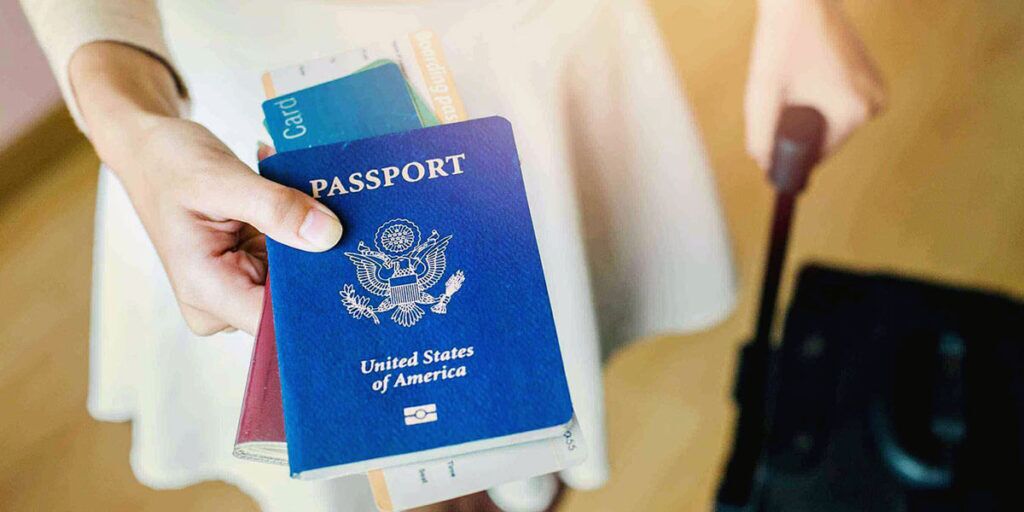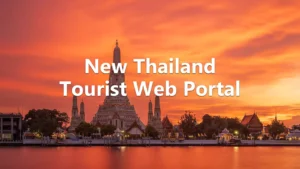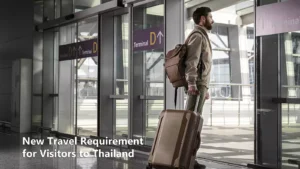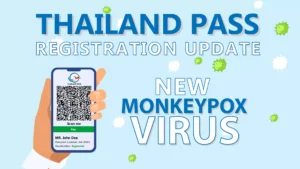Updated on October 26, 2023, Bangkok, Thailand
Travel to Thailand from US can be done now without any restrictions. You should exercise normal precautions however when in public. All travel restrictions previously implemented have been lifted.
Thailand has always been a favorite destination for US holiday goers. Delicious food, diverse culture, and stunning beaches have drawn people year after year. Since Thailand is famous among foreign travelers, the Thai government was quick to remove any travel restrictions and remove any entry requirements.
US Citizens should consult with the State Department for travel advisories and with the Royal Thai Embassy Washington DC for the most current visa information, if you plan to stay long term in Thailand. Short term traveler on holiday are allowed to stay for 30 days with the visa exemption scheme.
Traveling to Thailand has become even easier for 2023: No restrictions in place. Check for any travel advisory before your departure.
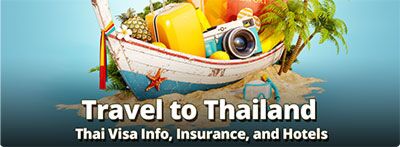
Required Documents for Travel to Thailand
Please have the following documents ready.
- Passport with at least six month validity
- Visa or visa exemption qualification
- Buy Thailand Travel Insurance
- Boarding pass to be presented at Passport Control
- Hotel booking confirmation if asked by Immigration Officer
- Note: Vaccination record no longer required
Incorrect documents will delay the entry screening by rules from the Thai immigration bureau and its Thai immigration officials.
[button style=’red’ url=’https://www.siam-legal.com/axa-insurance’ target=’_blank’ icon=’icon-entypo-basket’]Buy Your Insurance Now[/button][/infobox]
If you are an American citizen who is ready to get away, these are the major changes that will affect travelers:
- Foreigners do not need to show proof of Covid Insurance.
- All mandatory hotel quarantine has been removed.
- Thailand Pass is no longer required for foreign travelers entering Thailand.
- Vaccinated travelers do not need to provide proof of vaccination before arriving.
- Unvaccinated travelers: No restrictions
- Airlines and Thai Immigration no longer request proof of travel insurance to Thailand
- Wearing masks is no longer compulsory
- The TM6 arrival card has been temporarily removed when entering Thailand.
Things are easier, but remember travelers still need to be responsible when abroad and remember to exercise normal precautions regarding public health for protection against Covid 19. Read on to learn how you can enjoy a worry-free holiday in Thailand. If you feel unwell it is best to visit a medical professional at a Thai clinic or hospital. Without travel insurance, you will be required to pay at your own expense. Remember to hold Thai currency for such emergency situations.
Visas for US Citizens
United States of America – a Visa Exempt country
If you ask people about traveling to Thailand, you will often hear the word VISA. US Citizens are fortunate because USA is included in Thailand’s Visa Exemption list.
American citizens can enter Thailand as a tourist for up to 30 days without needing a pre-approved Thai visa. Visitors from the USA can organize a 30-day period of stay when landing at one of Thailand’s international airports. This 30-day stay is often referred to as a “Visa on arrival”.
If 30 days is not long enough after two years of isolation There are many options for American citizens to visit (or move to) Thailand on a longer-term basis with a Thai Visa. US Citizens must obtain a Thai visa for stays longer than 30 days.
Long Term Visas for Americans
Tourist Visa
Foreigners can apply for a Tourist Visa from the Thai embassy or consulate. Normally, it is a 60-day tourist visa that can be extended for additional 30 days.
Thailand Elite Visa
If you wish to make Thailand easily accessible for many years to come or are perhaps thinking of relocating permanently, it is worth having a look at the Thai Elite Visa.
The Thai Elite Visa allows American citizens to live in Thailand for 5, 10, 15, or even 20 years. Thai Elite members do not need to worry about some of the eligibility criteria that are needed when applying for other long-term visas.
The Thai Elite visa is exclusive and offers a host of benefits to holders. If you want to enjoy “Thai life” for the long term, you can read more about the Thailand Elite Visa.
Non-Immigrant Visa
Foreigners may also apply for a wide range of non-immigrant visas:
- Non-immigrant B Visa – for conducting business or employment
- Non-immigrant O visa – for visiting Thai spouse and family
- Non-immigrant ED visa – for students of recognized institutions in Thailand and their Parents or Legal guardian
- Non-immigrant O retirement visa – for those who wish to retire in Thailand
- Non-immigrant OA and OX visa – for those who wish to obtain a Thailand retirement visa for long stay (it differs from type O visa)
The above visas can be organized with a local Thai Embassy or Consulate in the USA. The paperwork can be quite involved, but there are companies that can help. Check if e visas are available for your desired type of non-immigrant visa.
Foreign nationals are prohibited from employment unless they applied for a Thai work permit.
Siam Legal International is a reputable law firm in Thailand that has offered visa assistance to Americans for years. They are well versed in Thai immigration policies and processes.
Whether you are looking to study, conduct business, seek medical treatment, or even retire in Thailand, Siam Legal can help streamline your application process for a long-term stay in Thailand. You can reach Siam Legal at www.siam-legal.com.
How to get to Thailand in 2023
Entering Thailand from US
Thailand Pass is no longer required from July 1. Americans do not need to register in systems, provide documents for COVID 19 vaccinations, or seek pre-approval before traveling to Thailand.
When American citizens visit Thailand, they need to look at their vaccination status and plan accordingly.
Vaccinated Travelers – Vaccinated travelers from the US do not need to complete any Covid tests before leaving America. No vaccination certificate is required. Children under 18 have no restrictions for entry.
Unvaccinated Travelers – Will I be denied entry if I am unvaccinated? No, unvaccinated travelers from the US do not need to complete any Covid tests before leaving America. No vaccination certificate is required
With the removal of Thailand Pass post COVID-19 restrictions, airlines and immigration officers no longer conduct random checks of passengers to confirm Covid requirements are met. No need to have your Vaccination or Covid Test certificate available for show. All travel restrictions have been removed and are no longer in effect.
Airlines and Booking Flights
Flights from the United States to Thailand are available from many airlines. The following airlines are operating and are available for travelers to book flights from the United States to Thailand:
- EVA Air
- All Nippon Airlines
- Emirates
- Lufthansa
- Cathay Pacific
- Qatar Airways
- Etihad Airways
- Japan Airlines
- Singapore Airlines
- KLM Royal Dutch Airlines
All mandatory quarantine was removed from July 1, 2022. On social media, you may hear the term “sealed flights”. These are no longer required, so US citizens are free to enter Thailand at any international airport and then transit domestically anywhere in Thailand.
The Thailand Pass was removed and is no longer in effect. Airlines no longer are required to check passengers’ documents before boarding.
Organize Your Travel Insurance
Since the change of July 1, 2022, the common question asked about travel is,
“Do I need Travel Insurance?”
The fact is that from July 1, 2022, Thailand does not require foreign visitors to have insurance with Covid cover. Travelers do not need to provide any proof of insurance in order to enter Thailand.
Before Covid, seasoned travelers understood the benefits of comprehensive travel insurance. Covid has not changed this. Though travel restrictions have eased, Covid is still a problem, and if diagnosed with Covid while traveling, an American citizen will still be required to isolate in a hotel or quarantine in a medical facility. This can ruin any holiday, especially if you need to budget for potential medical expenses.
The important thing to know about insurance and Thailand is that foreigners are not eligible for any form of free medical care. No matter the circumstance, if an American needs medical attention, they need to pay for it. Depending on the severity, this could amount to thousands of dollars in out-of-pocket costs.
Travel Insurance to Thailand is something that is better to have and not need, then need and not have. Your Thailand travel insurance doesn’t just cover Covid. Comprehensive travel insurance will also cover:
- Medical emergencies
- Personal injury & accidents
- Missed or delayed flights
- Damage to belongings
- Loss of luggage
There are multiple reasons to protect yourself when traveling. Many visitors to Thailand choose AXA Insurance Thailand. It is a trusted company that offers comprehensive insurance to travelers from around the world. Their policies are straightforward with good coverage.
Some advantages to AXA Insurance are:
- Recognized and trusted by Thai authorities and medical facilities.
- Easy to apply online and approved in minutes.
- Competitive pricing and cover.
- Has no 14 day waiting period and covers Covid-related incidents, including asymptomatic cases.
- Provides customers with a convenient 1-Page Certificate of insurance. This certificate contains all relevant information needed by medical professionals or if making a claim.
To see the cover offered and organize your insurance to Thailand in minutes. Visit AXA Thailand.
Finding Accommodation in Thailand
Thailand is popular as a holiday destination because of its diverse geography. People can visit and lounge of a beach, go diving on the islands, or visit the mountains and lose themselves in nature.
There is accommodation everywhere, and US travelers can spend a night somewhere beautiful for less than a meal back home. Common travel destinations are Bangkok, Phuket, Chiang Mai, Pattaya, Koh Samui and Hua Hin .
After July 1, 2022, visitors are welcome to book any accommodation. There is no need to book SHA+ hotels or quarantine packages. SHA+ quarantine packages have been removed from most booking sites.
Now that Thailand Pass is removed, visitors don’t need to provide any proof of a hotel booking before entering Thailand. But after a long flight, it’s nice to have at least your first night’s accommodation organized. It is good to see what is around in your travel area, and if you are a “planner”, you can use hotels to help decide places to visit.
To find and compare the best hotels available in Thailand, visit Agoda. They allow free booking and cancellation, confirm bookings with hotels and their web page is easy to navigate and compare hotels. You can book any accommodation in Thailand, and many hotels are offering competitive prices to welcome holiday makers back.
Arriving in Thailand – Best Practices
So what can you expect when landing in Thailand? Travel to Thailand is back to normal. Americans are again being welcomed by Thai locals and post-Covid experiences are being created.
Here are a few things that will help you enjoy your trip and show respect to local Thai people.
Wearing Masks
From July 1, 2022, masks are no longer compulsory, but still recommended when in public places. You see that many Thai people (and visitors) still wear masks when out and about. It is recommended to wear a mask when visiting restaurants, tourist areas or public venues. You will not get in trouble for not wearing a mask. It’s a case of “do as the locals do”. It is about respect and consideration.
TM6 Arrival Cards
The Thai government has temporarily removed the need for visitors to complete the blue arrival card known as TM6. Their aim is to ease congestion at airports and remove another form that holiday makers need to complete. This initiative is in a testing phase, but it is hoped that the removal of TM6 will be successful and the change will become permanent.
Paperwork to Prepare
Though Thailand Pass is removed, and travelers do not need to provide proof before entry, it is recommended that passport holders prepare a few documents before arrival in Thailand.
- Passport
- A copy of your Travel Insurance
- Hotel booking or address of stay
- Boarding Pass with your flight number and travel date clearly identified
- Thai Visa, if you stay in Thailand is over 30 days.
- Covid-19 medical and vaccination records are optional
These documents can be presented in digital form, but airlines, Immigration and Health Officers will appreciate the extra effort if you print them.
COVID 19 Insurance: https://u.axa.co.th/Sawasdee_Siamlegal
Book Your Hotels for Thailand: https://www.agoda.com/?cid=1897011
Do’s and Don’ts When Visiting Thailand

Thailand is a country with rich cultural traditions and a strong sense of social etiquette. Here are some dos and don’ts to keep in mind when visiting:
Dos
- Show Respect to the Monarchy: Thai people have a deep respect for their royal family, and it’s important for visitors to show the same respect. Never speak ill of the monarchy.
- Wai Properly: The ‘Wai’ is a traditional Thai greeting involving a slight bow, with the palms pressed together in a prayer-like fashion. It’s a sign of respect and is commonly used when greeting, thanking, or apologizing.
- Respect Buddhist Monks: Monks are highly respected in Thailand. Always give them space, and do not touch them if you are a woman.
- Remove Your Shoes: Take off your shoes when entering someone’s home and even in certain shops or guesthouses.
- Dress Appropriately: Dress modestly, especially when visiting temples. Shoulders and knees should be covered.
- Stay Calm: Keep your cool, even in frustrating situations. Raising your voice or showing anger is considered losing face, and it’s highly frowned upon. Be patient with drivers of metered taxis. Always use the meter and exit if they refuse to do so.
- Use Polite Language: Use ‘ka’ (for women) or ‘krup’ (for men) at the end of sentences to be polite.
- Practice Good Table Manners: Wait for the eldest person to start eating first, and try a bit of everything.
- Be Respectful with Your Feet: Feet are considered the lowest part of the body in Thai culture. Do not point them at people or religious objects.
- Support Sustainable Tourism: Engage in responsible and sustainable tourism practices to help preserve the country’s natural and cultural heritage.
Don’ts
- Don’t Touch Someone’s Head: The head is considered the most sacred part of the body, and it should not be touched.
- Don’t Point Your Feet: As mentioned before, feet are considered lowly, so don’t point them at people or religious objects.
- Don’t Show Public Displays of Affection: Keep public displays of affection to a minimum as they can be considered disrespectful.
- Don’t Take Photos in Restricted Areas: Be mindful of signs that prohibit photography, especially in religious or sacred sites.
- Don’t Engage in Illegal Activities: This includes drug use and purchasing counterfeit goods. Don’t remove Buddha images from the country.
- Don’t Disrespect Religious Objects or Sites: Always show respect at temples and other religious sites.
- Don’t Touch Artifacts or Relics: In museums and historical sites, refrain from touching artifacts unless explicitly allowed.
- Don’t Feed the Monkeys: If you encounter monkeys, do not feed them as it can lead to aggressive behavior.
- Don’t Litter: Dispose of your trash responsibly and avoid using single-use plastics.
- Don’t Engage in PDA at Religious Sites: Even more so than in public, avoid public displays of affection at temples and other religious sites.
By following these guidelines, you can help ensure that your visit to Thailand is enjoyable and respectful of the local culture and traditions.
Summary for Travel to Thailand for US Citizens
Thailand is fully open and no travel restrictions are currently in place. Any future travel advisory will be posted on Thai Embassy Washington DC website. Remember that US Citizens can stay in Thailand for up to 30 days without a Thai Visa. Entry restrictions are subject to change. For further information regarding Thailand Thailand restrictions: https://www.thaiembassy.com/travel-to-thailand/thailand-travel-restrictions-2023
If you need a travel insurance for your trip, you may book from here: https://u.axa.co.th/Sawasdee_Siamlegal







